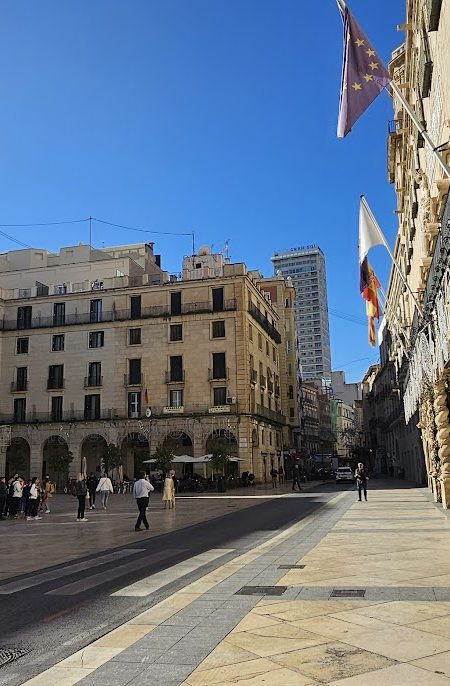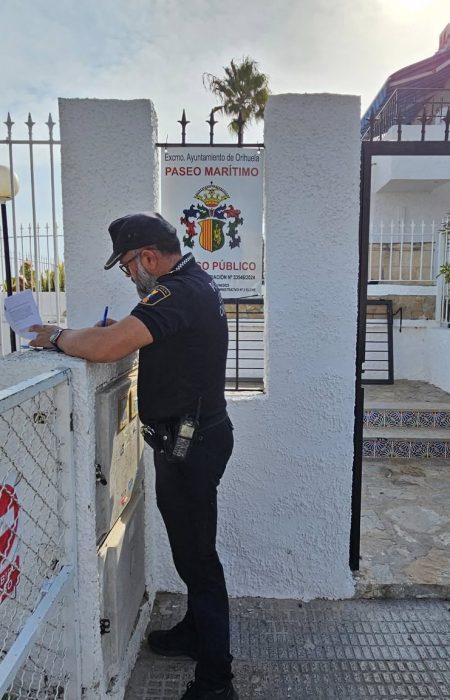Vacation rentals (VUT) have sparked debate in recent years. Benidorm has benefited from vacation rentals since it first entered the market, which has helped it become the city it is today, a model of national tourism. Due to the proliferation of these isolated accommodations in residential buildings, many towns have decided to reconsider the model and postpone licence issuance until the requirements for their development are set. This is not the situation in Benidorm, which has taken on the obligation of inspecting and punishing those who do not comply. This assignment was allocated more than a month ago, and the Council is currently reviewing allegations involving 31 homes dedicated to this activity.
Benidorm Council formed its own inspection team in mid-July, when the Valencian Government’s Tourism Department shifted responsibility to the municipality. The team is made up of five people: two officers, one Local Police officer, an instructor in charge of disciplinary actions, and the Head of Municipal Inspection.
In this way, Benidorm assumed direct control of the procedures, with the authority to fine owners who market their property in violation of current norms. Furthermore, the proceeds from these violations will go to municipal coffers rather than the Generalitat (Catalan government), as was the case when the previous regional government proposed the Botànic project, which they turned down at the time, as explained by the local government when they announced this measure.
A month following its introduction, the Council announces that they are finalising an action plan that will include everything from inspections to case processing and resolution. Once cleared, they will be allowed to start the initial inspections, which are scheduled to begin next week, at the beginning of September.
According to municipal authorities, the group has met several times since its formation to describe the procedure to be followed, “both from a technical and operational perspective to ensure it is as effective and efficient as possible.” On the one hand, technicians from the Territorial and General Directorate of the Regional Ministry met in Alicante to learn about the Generalitat’s working methods and adapt them to Benidorm’s requirements. On the other side, they conducted an inspection with the National Police organisation to establish the method, as this organisation was in charge of reinforcing the Regional Police in housing inspections when the Generalitat still held that role.
The Council is currently considering 16 complaints involving 31 homes, according to the same sources. Six of them were originally filed with the Territorial Directorate, which was later transferred to the Council; the remaining ten have already been registered with the Council. According to Councillor for Urban Planning and local government spokesperson Lourdes Caselles, complaints are handled through three channels: the Local Police, the Ministry of Tourism, and a request to the Council’s General Registry.
Criteria for legal action and sanctions
To operate lawfully, accommodations must get a tourist licence from the Valencian Community. This has not altered since the Generalitat Valenciana approved Decree Law 9/2024 on August 2nd, which alters the legislation controlling tourist accommodations. However, it has made significant modifications to the system, redefining what constitutes tourist accommodation. Since then, only accommodations rented for fewer than 11 days fall into this category and require identification.
But what does it take to get this permit? To be recognised as a tourist residence, a positive municipal urban planning compatibility report is necessary, as well as a unique, individualised cadastral reference that must be included in the rental agreement. Furthermore, in order to register the property, a document demonstrating that the owners’ association does not prohibit the building’s apartments from being used for purposes other than residential, such as tourism, is required. The ruling also resulted in the expiration of licenses. Registration must be renewed every five years and cannot be inherited. That is, once the registered property is sold, the new owner forfeits the licence and must reapply.
The City Council will now be able to fine properties that do not comply with the regulations. The aforementioned decree by the Generalitat (Catalan Government) defines significant and extremely serious infractions, punishable by fines of up to €600,000. Thus, renting by the room or overbooking spaces is considered a very serious violation, whereas failing to disclose the exact location of the property and its registration number in all advertising, failing to notify a change of owner as required, or failing to provide the owner’s contact information are considered serious violations.









No Comment! Be the first one.